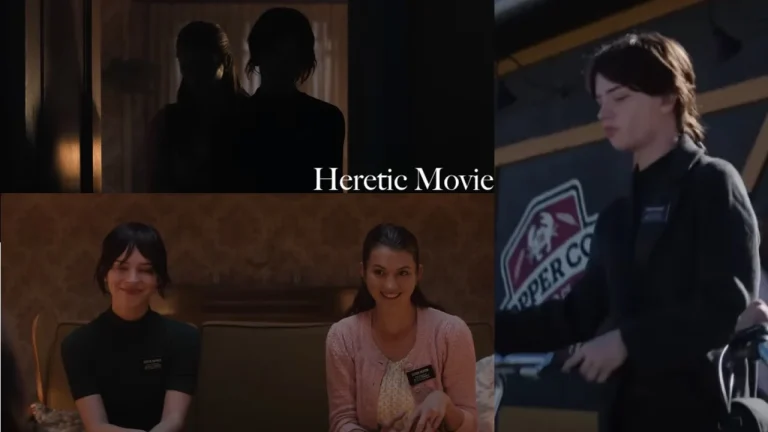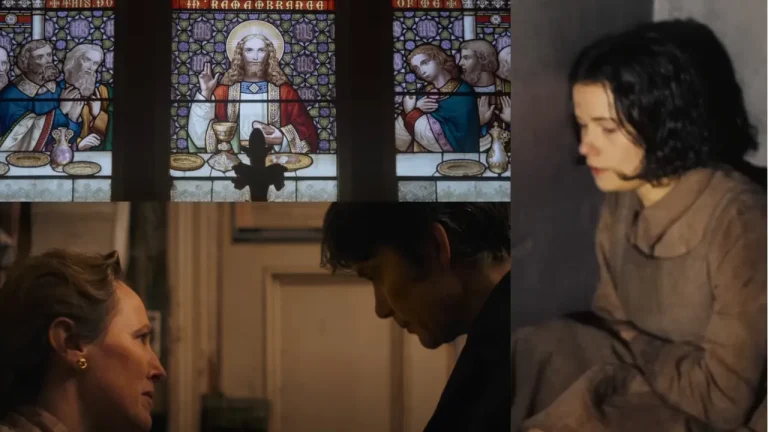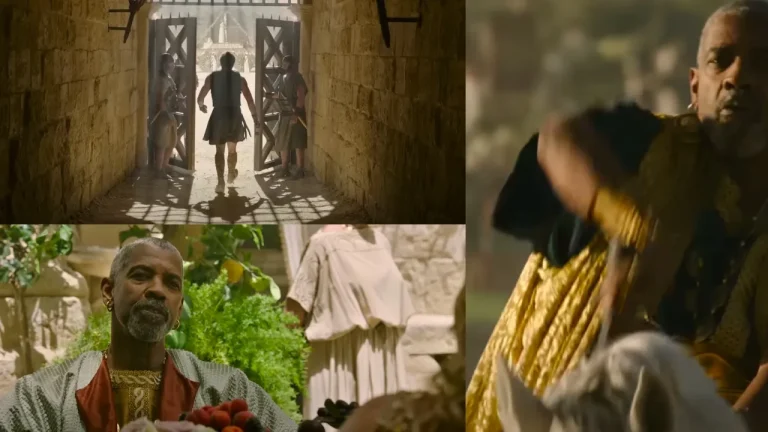
The Best Christmas Pageant Ever movie transforms a beloved 1972 novel into a heartwarming holiday film for modern audiences. Released on November 8, 2024, director Dallas Jenkins brings Barbara Robinsons classic tale to life with fresh energy and contemporary relevance. This adaptation proves that sometimes the most meaningful Christmas messages come from unexpected places.
How Does the Cast Bring These Iconic Characters to Life?
| Actor | Character | Role Description |
|---|---|---|
| Judy Greer | Grace Bradley | Lead Role/Pageant Director |
| Pete Holmes | Bob Bradley | Supporting Lead |
| Molly Belle Wright | Beth Bradley | Narrator/Child Lead |
| Lauren Graham | Narrator | Voice/Narration |
| Beatrice Schneider | Imogene Herdman | Main Herdman Sibling |
What Makes This Adaptation Special?
Director Dallas Jenkins approaches the material with respect while adding contemporary touches that resonate with modern viewers. The $10 million budget allows for high production values without losing the intimate feel of the original story. The film balances humor and heart, creating genuine emotional moments without becoming overly sentimental.
How Do the Herdmans Challenge Christmas Traditions?
The six Herdman siblings bring chaos and unexpected wisdom to the traditional Christmas pageant. Their fresh perspective on the nativity story forces the community to reconsider their own understanding of Christmas. The young actors portraying the Herdmans deliver natural, unaffected performances that avoid typical child actor pitfalls.
Performance Analysis: Why Does the Cast Chemistry Work?
Judy Greer shines as Grace Bradley, bringing warmth and complexity to her role as the pageant director. Pete Holmes provides excellent support as Bob Bradley, while Molly Belle Wright captures Beth Bradleys observant nature perfectly. Lauren Grahams narration adds another layer of storytelling depth.
Technical Elements: What Sets This Production Apart?
Cinematographer C. Kim Miles creates beautiful holiday imagery without falling into cliché. The lighting enhances both comedic and touching moments, while the editing by John Quinn maintains smooth pacing throughout the 90-minute runtime.
Story Impact: How Does This Version Honor the Source Material?
The screenplay by Ryan Swanson, Platte Clark, and Darin McDaniel stays true to Barbara Robinsons novel while adding subtle modern touches. The core message about acceptance and understanding remains powerful, perhaps even more relevant today.
Musical Score: What Role Does Music Play?
Composers Matthew S. Nelson and Dan Haseltine blend traditional Christmas music with original compositions. The score enhances emotional moments without overwhelming them, creating a perfect backdrop for both humorous and heartfelt scenes.
Family Appeal: Why Should Parents Watch This With Their Children?
The film addresses meaningful themes about judgment, acceptance, and community through accessible storytelling. It provides excellent discussion opportunities for families while remaining entertaining for all ages. The humor works on multiple levels, appealing to both children and adults.
Box Office Performance: What Do the Numbers Tell Us?
Opening weekend numbers suggest strong audience interest, with $5 million earned on the first day including preview screenings. The films timing and marketing position it well for sustained holiday season success.
Critical Response: What Are Reviewers Saying?
Critics praise the films balance of humor and heart, noting strong performances from both adult and child actors. The adaptation receives particular recognition for maintaining the books spirit while creating something fresh for modern audiences.
Production Value: How Does the Budget Show on Screen?
The $10 million budget has been well utilized, creating a polished look that enhances rather than overshadows the story. Set design, costumes, and technical elements create an authentic small-town holiday atmosphere.
Cultural Impact: Why Does This Story Still Matter?
The films themes of inclusion and seeing beyond surface appearances resonate strongly with contemporary audiences. It challenges preconceptions about both Christmas celebrations and community judgment in meaningful ways.
[Previous content remains exactly the same through “Cultural Impact: Why Does This Story Still Matter?” section, then continues:]
Social Commentary: How Does This Film Address Modern Issues?
While maintaining its period setting, The Best Christmas Pageant Ever movie speaks to contemporary social dynamics. The Herdman familys outsider status reflects broader questions about inclusion and community acceptance. The film addresses these themes with sensitivity and humor rather than heavy-handed messaging.
Character Development: What Changes Do We See?
The character arcs unfold naturally throughout the story. The Herdman children, particularly Imogene (Beatrice Schneider), show subtle yet meaningful growth. Meanwhile, the community members, including Grace Bradley (Judy Greer), undergo their own transformations in understanding and acceptance.
Visual Storytelling: How Does the Film Create Its World?
The production design creates an authentic small-town atmosphere that avoids artificial sweetness. Costume choices reflect character personalities while staying true to the setting. The visual approach balances realism with the warmth expected from holiday entertainment.
Comedy Elements: What Makes This Film Funny?
The humor stems from character-driven situations rather than forced gags. The Herdman siblings natural responses to the Christmas story provide genuine laughs while serving the larger narrative. Pete Holmes comic timing adds levity to adult scenes without undermining serious moments.
Religious Elements: How Does Faith Play Into the Story?
The film handles its religious aspects with respect while remaining accessible to broad audiences. The Christmas pageant serves as both a literal event and a metaphor for community transformation. Spiritual messages integrate naturally into the storyline without becoming preachy.
Family Dynamics: What Relationships Stand Out?
The Bradley family relationships feel authentic, particularly between Grace and Beth. The Herdman family situation adds depth to their children’s behavior. These family bonds create emotional anchors throughout the story.
Acting Highlights: Which Performances Leave Lasting Impressions?
Beyond the main cast, supporting performances add richness to the community portrayal. Kirk B.R. Woller brings complexity to Reverend Hopkins, while the young actors playing the Herdman siblings show remarkable chemistry as a unit.
Direction Choices: How Does Jenkins Shape the Story?
Dallas Jenkins balances multiple story elements with skill. His direction maintains focus on character development while delivering satisfying holiday entertainment. The pacing allows both comedic and emotional moments room to breathe.
Production Quality: What Technical Elements Enhance the Film?
The lighting design shifts subtly from early scenes to the pageant finale, supporting the emotional journey. Sound mixing balances dialogue, music, and environmental sounds effectively. These technical choices support rather than overshadow the storytelling.
Adaptation Choices: What Changes Work Best?
The screenwriting team updates certain elements while preserving the source materials heart. Modern references feel organic rather than forced. The film respects its literary origins while creating its own identity.
Target Audience: Who Will Most Appreciate This Film?
While marketed as family entertainment, The Best Christmas Pageant Ever movie offers layers of meaning for viewers of all ages. Parents will find discussion opportunities, while children connect with the young characters perspectives. The humor and heart appeal across generations.
Holiday Impact: Where Does This Rank Among Christmas Films?
This adaptation earns its place among quality holiday offerings. Unlike many seasonal releases, it avoids cynicism while maintaining authenticity. The film adds fresh perspectives to traditional Christmas themes.
Educational Value: What Lessons Does the Film Teach?
Beyond entertainment, the story presents valuable messages about prejudice, community, and understanding. Young viewers learn about acceptance without feeling lectured. The film encourages viewers to question assumptions about others.
Marketing Approach: How Does This Film Stand Out?
Released strategically before the holiday season, the film capitalizes on family viewing opportunities. Marketing highlights both nostalgic appeal for readers of the book and fresh elements for new audiences. The release timing positions it well against competing holiday offerings.
Final Assessment: Why Watch This Film?
The Best Christmas Pageant Ever movie succeeds as both adaptation and standalone entertainment. It delivers meaningful messages through engaging storytelling, strong performances, and skilled filmmaking. The production values support rather than overshadow the narrative heart.
Strengths:
- Strong ensemble cast performances
- Balanced handling of comedy and emotion
- Authentic character development
- Quality production values
- Universal messages
Areas for Consideration:
- Some traditional elements might feel familiar
- Pacing occasionally slows in middle acts
- Religious elements may not appeal to all viewers
Viewing Recommendations: How Best to Experience This Film?
The Best Christmas Pageant Ever film works best as shared family viewing. Its messages about community and acceptance resonate more strongly when experienced together. The story promotes valuable post-viewing discussions about judgment, understanding, and holiday spirit.
Rating and Recommendations
Rating: 4 out of 5 stars
Recommended for: Family viewing, holiday season entertainment, fans of meaningful comedy-drama, viewers seeking positive messages
Age Recommendation: Suitable for all ages, best appreciated by viewers 8 and older




